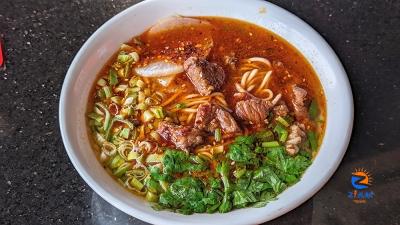
[ad_1]
KUALA LUMPUR, March 31 – The popularity of Chinese-style beef noodles, especially those served with la mian or “mee tarik” in the Klang Valley, has seen a sharp uptick in recent years; as such, it’s no surprise to see yet another new player enter the scene.
Towards the end of 2023, ChenJiuru Beef Noodles opened on Jalan Imbi, touting a generations-long connection to the dish.
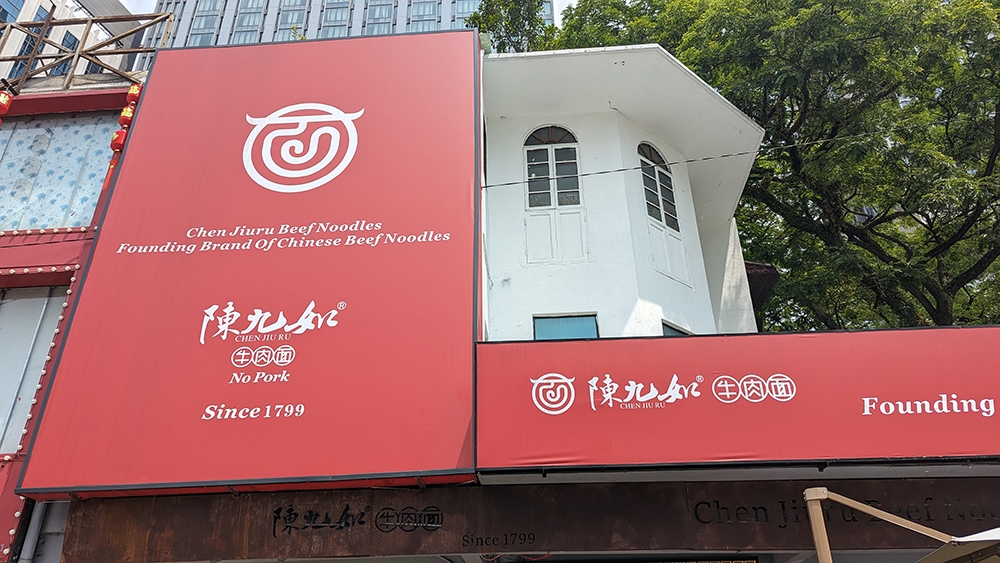
It’s impossible to miss this gigantic red sign next to Restaurant Overseas along Jalan Imbi.
The restaurant is named after Chen Jiuru, the sixth-generation descendant of Chen Weijing, a Qing dynasty scholar from Bo’ai county, Henan who is purported to have codified the earliest recorded recipe for beef noodles.
Advertisement
Varying accounts of the provenance of Lanzhou beef noodles exist.
Still, there are intersecting mentions of Ma Liuqi, a native of Lanzhou who was a classmate of Chen Weijing, and Ma Baozi, his descendant who is credited with the creation of Lanzhou beef noodles.
The establishment wears its story on its sleeve, though to include “since 1799” is a little dubious in my opinion.
Advertisement
The flagship location was opened in 2022 by Chen Tongyue, the only son of Chen Jiuru, in Zhengzhou, Henan province.
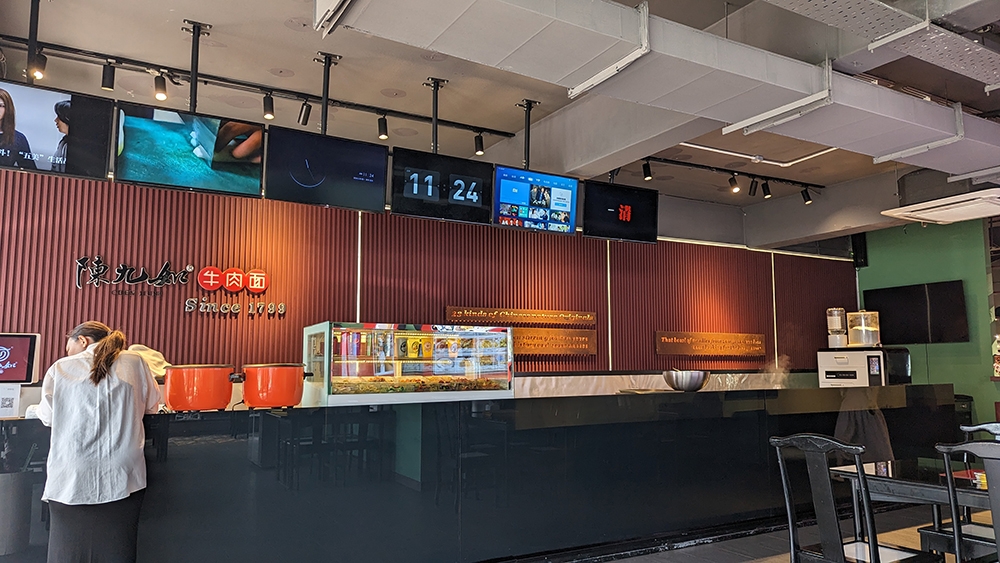
The counter where your noodles are assembled, though there’s little to look at even when you walk over.
Still, the idea of tasting a recipe hailing from the Qing dynasty proved at least somewhat compelling, so I walked in.
At the vast majority of la mian or mee tarik places here, the focus is on hand-pulled noodles which can be served in a variety of ways, the most popular of which being versions of Lanzhou beef noodles.
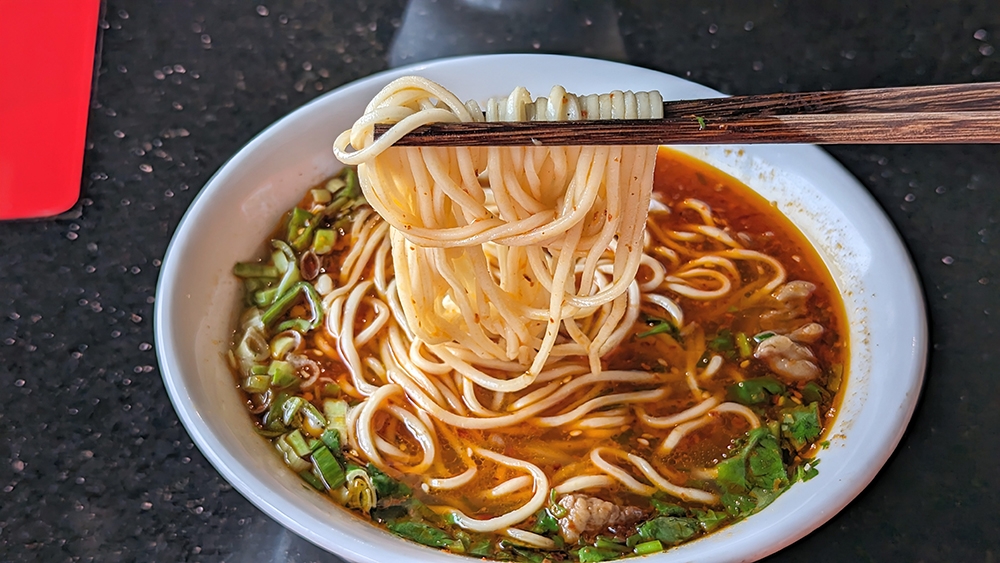
The soft wheat noodles here are made in the same style as Lanzhou lamian, though I would refrain from calling them hand-pulled.
In contrast, the focus here is squarely on the broth, or at least the total package of beef, noodles and soup, without any show of noodles being pulled or slammed around.
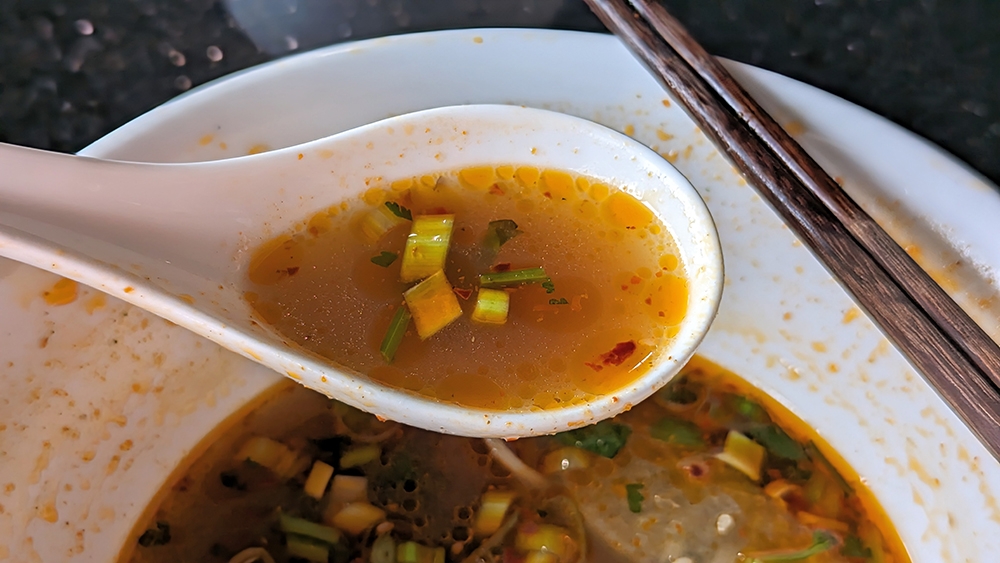
Look past the red tinge from the chilli oil to see that the broth of the Signature Braised Beef Noodles is darker than most.
The Signature Braised Beef Noodles (RM21) comes with all the usual suspects in a bowl: soft wheat noodles, sliced radish, fistfuls of scallion and cilantro, and a bright red chilli oil that stained the relatively clear beef broth – though this was darker than most I’d come across.
In addition to that distinction, one is greeted with chunks of braised brisket that sport a brown-to-red appearance as opposed to the grey slices of my experience.
Tender, with just a sliver or two of fat clinging onto a few pieces, these nuggets of meat were little explosions of intense beef flavour.
The broth itself was also far richer, far more complex than most I’ve had, even when nudging the pool of chilli oil aside for an initial unadulterated taste.
I was informed that this was due to the “hong shao” or “red-braised” cooking technique, which differs from the more common “qing tang” or “clear soup” style of beef noodles.
The aromatics pulled double duty in keeping things bright and balanced, while the chilli oil left just a hint of a tingly tease on the tongue.
A bottle each of more chilli oil and black vinegar sits tableside for any adjustments; I found a drop or two of vinegar went a long way in keeping things perky as I slurped down the massive portion of noodles and soup.
On another visit, I gave the Traditional Soup Beef Noodles (RM14) a try.
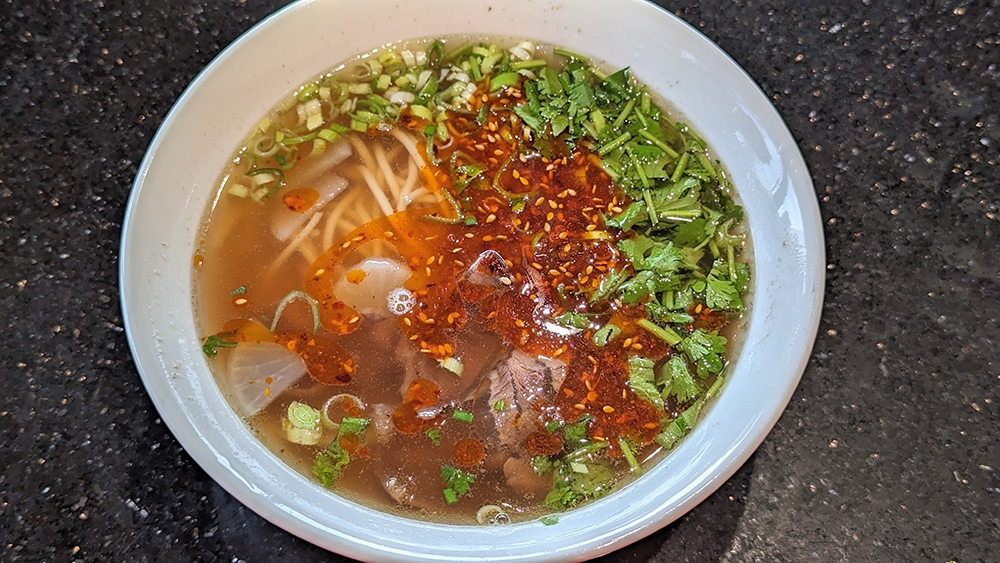
Despite the fiery red colour of the chilli oil, a bowl of Traditional Soup Beef Noodles is more on the mellow side.
This came with the grey slices of meat I’m unfortunately accustomed to, and the soup bore more similarity with the “qing tang” style that’s traditionally associated with Lanzhou beef noodles.
It lacked the depth and unctuousness I so dearly enjoyed in the signature braised version, though the noodles were just as soft and easy on the palate in both.
If a lighter, cleaner taste of beef that’s still riddled with chilli oil is what you’re looking for, this is the order for you.
Though the menu is fairly extensive beyond just beef noodles, I left at around half past noon on a weekday barely able to eat much more.
Plenty of office types had begun to stream in, with Mandarin Chinese being the dominant language by far.
I also noticed that the restaurant stays open till one in the morning; suggesting the possibility of yet another late-night jaunt to the city for me.
ChenJiuru Beef Noodles Restaurant
82, Jalan Imbi, Bukit Bintang, Kuala Lumpur
Open daily, 8am-1am
Tel: 018-292 9111
*This is an independent review where the writer paid for the meal.
*Follow us on Instagram @eatdrinkmm for more food gems.
[ad_2]